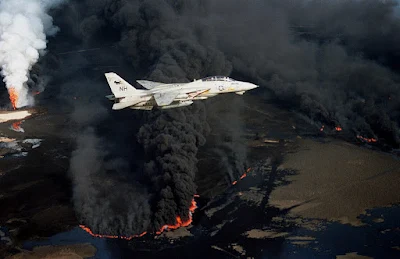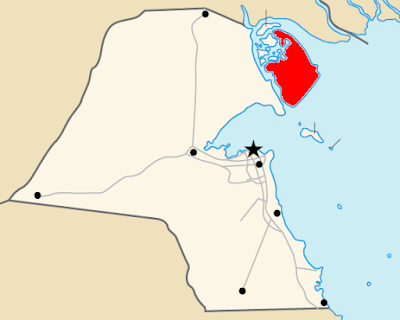30+ Interesting Facts About Kuwait
- Kuwait is a small country in the Arabian Peninsula. The Persian Gulf is on its east, which forms a maritime border with Iran. This Middle Eastern country shares land borders with Iraq (north and northwest) and Saudi Arabia (south and southwest).
- Kuwait is an emirate ruled by the Al Sabah family. This dynasty initially established a Sheikhdom in Kuwait in 1756.
- Kuwaiti ruler Abdullah II (1866-92) formed close relations with the Ottoman Empire. After his assassination, the new ruler (Mubarak the Great) turned Kuwait into a British protectorate in 1899 due to the danger of an Ottoman invasion. This British protection continued until the country’s independence in 1961.
- Britain managed to establish the Kuwaiti-Saudi border in 1922. However, efforts to resolve disputes with Iraq remained unsuccessful. Iraq claimed Kuwait to be its territory in 1938, the year of the discovery of oil in the emirate. Iraq later recognized the independence and borders of Kuwait in 1963.
- Kuwait introduced conscription after independence in 1961, becoming the first Middle Eastern country to do so. Kuwait continued compulsory military service until 2001 and re-introduced it in 2017 alongside several other regional countries.
- Kuwait provided substantial financial aid to Iraq during the Iran-Iraq War (1980-88). In reply, Iran and its proxies carried out several terrorist activities in Kuwait. However, the relations between Iraq and Kuwait soon deteriorated after the war.
- Iraq invaded and captured Kuwait in August 1990 when it refused to forgive billions of dollars of debt. It resulted in the Gulf War (1990-91), which ended with the retreat of Iraqi forces and the re-establishment of the sovereignty of Kuwait in January 1991. Dozens of countries, under the leadership of the USA and Saudi Arabia, took part in this war against Iraq.
- While retreating from Kuwait, Iraqi forces torched more than 700 oil wells. It took seven months to extinguish the enormous fire. This environmental catastrophe has severely polluted the soil by forming around 300 oil lakes on the surface of the desert. It damaged the plant and animal life in the area and even polluted the fresh groundwater aquifers in the country’s north. (Source)

Burning of oil wells by Iraq created 300 oil lakes in Kuwait - There were nearly 400,000 Palestinians in Kuwait before the Gulf War. Kuwait expelled a majority of those (more than 300,000) to Palestine and Jordan after the war due to the Palestinian support for Iraq.
- “Umm al-aish Satellite Station in Kuwait was the first satellite ground station in the Middle East. It was established in 1969 but destroyed by Iraq after its invasion in 1990.
- Kuwait has the 6th largest oil reserves (around 100 billion barrels) in the world. Petroleum products constitute nearly 85% of the total exports of Kuwait.
- The Burgan Field in southeastern Kuwait is one of the oldest (discovered in 1938) and the second-largest oil field in the world after the Ghawar Oil Field (Saudi Arabia). (Source)
- The Kuwait Investment Authority, established in 1953, is the world’s first sovereign wealth fund. The purpose of its creation was to invest in excess oil revenues. (Source)
- Kuwaiti Dinar (KWD) is the strongest currency in the world. It remained the most valuable currency since its inception in 1960. The reasons behind the top value of this currency are the large oil reserves and the economic stability of Kuwait.
- Kuwait is one of only 27 countries without any UNESCO World Heritage site. The country has four sites on the tentative list of UNESCO.
- Due to the scarcity of freshwater resources, Kuwait fulfills nearly 90% of its water demand through seawater desalination plants. This arid country commissioned its first distillation plant in 1951.
- Kuwait is facing the effects of global warming due to one of the highest CO2 emissions per capita in the world. One region in the northwest of the country recorded a temperature of 54 C in 2016, the third highest ever recorded on Earth. Therefore, 67%of the electricity consumption in residences is due to air conditioning. (Source)
- Kuwait has the most active parliament in the Gulf, and its press freedom is also one of the best in the region. (Source)
- Kuwait has the highest percentage of female labor force in GCC (Gulf Cooperation Council) countries. More than 30% of the labor force in the country consists of women. (Source)
- Bidoon are stateless people in Kuwait. Their population was 250,000 before the Gulf War but reduced to 100,000 after the war due to deportation and other measures. They cannot get facilities available to Kuwaiti nationals despite their permanent presence in the country and the absence of any other nationality.
- The National Bank of Kuwait, established in 1952, is the first national bank in the Gulf region (GCC). (Source)
- General education is free for Kuwaiti nationals. The students also receive free meals, uniforms, books, and transportation. Therefore, its literacy rate is among the highest (over 90%) in the Middle East.
- Boubyan Island is the largest island in Kuwait and the second-largest in the Arabian Gulf. It has the world’s largest breeding colony of crab plover, a bird related to waders. (Source)

Boubyan Island hosts the largest breeding colony of crab plover - Nearly 67% of the population in Kuwait consists of expatriate workers from Arab countries, South Asia, and Southeast Asia. The ethnic composition includes around 60% Arabs (from Kuwait and other countries) and 38% Asian.
- Like other GCC countries, Kuwait has also faced criticism for the mistreatment of foreign workers under the “Kafala” system. In 2018, the Philippines temporarily banned the immigration of Filipino workers to Kuwait after the death of seven domestic workers.
- Only Muslims can get citizenship in Kuwait. Nearly 77% of the population follows Islam, while 17% are adherents of Christianity. Around 33% of Muslims are Shia.
- Kuwait and Bahrain are the only countries in the GCC granting citizenship to the local Christian population. In 1999, a Kuwaiti Christian became the first priest and pastor of the National Evangelical Church in any GCC country. (Source)
- Arabic is the native and official language of Kuwait. Most Kuwaitis speak a dialect of Gulf Arabic, known as Kuwaiti Arabic. A distinguishing feature of this Arabic is the influence of Iranian languages on its vocabulary. The name “Kuwait” derives from the Mesopotamian Arabic word “kut” (fort).
- Kuwait is the most obese country in Asia. Its childhood obesity rate is also the highest in the continent. (Source)
- According to estimates, Kuwait has the 3rd lowest death rate (2.3) in the world after Qatar and UAE, two other Middle Eastern countries. (Source)
- Kuwait is one of the few countries with 100% urban population. Most of the population resides in Kuwait City, the capital.



Comments
Post a Comment